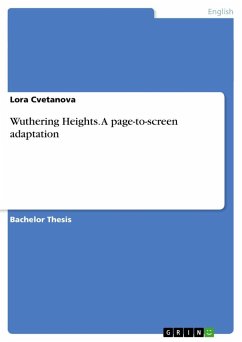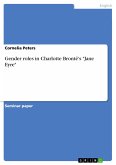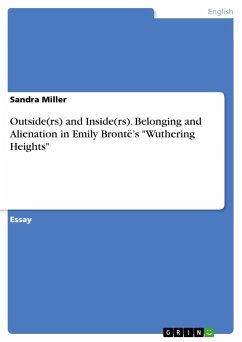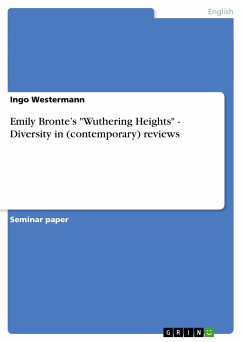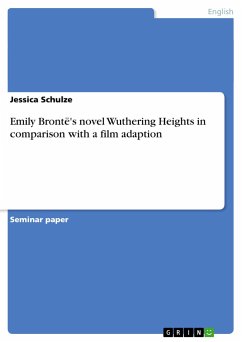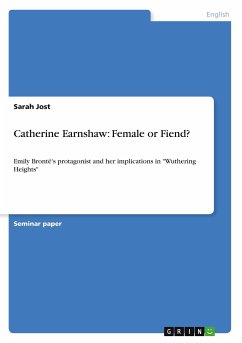Bachelor Thesis from the year 2013 in the subject English Language and Literature Studies - Literature, grade: B, Université Toulouse II - Le Mirail (English department), course: Master 1, language: English, abstract: This paper examines one of the most popular nineteenth-century novel "Wuthering Heights" together with its film adaptation (Wuthering Heights), directed by Cocy Giedroyc, a Mammoth Screen production supported by the Screen Yorkshire Production Fund, 2008), in order to understand the differences between films and novels as modes of storytelling, by a close examination of both the structure of the novel and film, then I will provide analyses of two sequences; from then I will proceed will proceed with a close up on two of the female characters Catherine and Isabella and finally I will discuss the sense of cold and loneliness both in novel and film.Wuthering Heights, written between October 1845 and June 1846, by Emily Bronte is one of the main classic novels of English literature, together with Sense and Sensibility (Author Jane Austin) and Great Expectations (Author Charles Dickens), which were successfully transformed into films by British filmmakers. Cinematic adaptations often provoke debates about their fidelity, to the original; discussions about how the classic text has been transformed into film, whether adapted movies are spoiling the charm of the novel and thus ruining it, or, on the contrary, whether film has "rescued" the novel, making it seem more interesting and worth reading in a new historical context. Can a novel be successfully transformed into film without spoiling it? Or on the contrary we may consider novels cannot be replaced and by adapting them the films deprive spectators of their ability to imagine?
Hinweis: Dieser Artikel kann nur an eine deutsche Lieferadresse ausgeliefert werden.
Hinweis: Dieser Artikel kann nur an eine deutsche Lieferadresse ausgeliefert werden.

